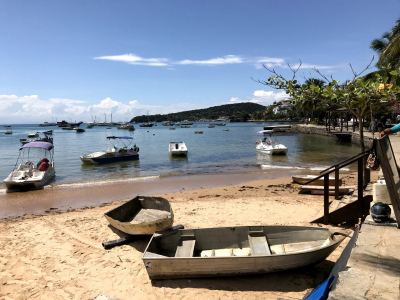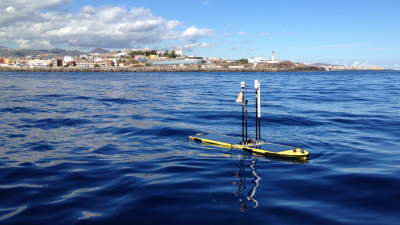- Home
- Discover
- Archive News
- News 2020
- Mission Atlantic
International, Horizon 2020 project, “Mission Atlantic” launched
Funded by a €11.5M grant from the European Union's Horizon 2020 program, MISSION ATLANTIC will be the first initiative to develop and systematically apply Integrated Ecosystem Assessments (IEAs) at Atlantic basin scale.
This unique IEA approach engages scientists, marine stakeholders, and resource managers, integrating all components of the ecosystem, including human activity, into the decision-making process. In this way, managers and policy makers informed by science, can balance the need for environmental protection with secure, sustainable development, thereby ensuring a positive future for the Atlantic Ocean and its peoples.
Patrizio Mariani, MISSION ATLANTIC Project Coordinator: “In an era of rapid transformations affecting our societies and our lives, we are asked to provide the scientific knowledge necessary to face future challenges and to guarantee a sustainable future for the next generations. By studying the complex Atlantic Ocean ecosystems, MISSION ATLANTIC will contribute to a better and more sustainable future for life on Earth."
Using high-resolution ocean models, artificial neural networks, risk assessment methods and advanced statistical approaches, MISSION ATLANTIC will accurately assess pressures imposed on Atlantic marine ecosystems, identifying the parts most at risk from natural hazards and the consequences of human activities.
The team will combine existing data from global ocean monitoring programs with new observations collected using advanced marine robots and acoustic sensors. A truly multidisciplinary approach, these tools will be used to explore plankton and fish distribution in unknown waters, including sub-Arctic and Tropical regions in the Atlantic Ocean.
University of Bremen’s MARUM is contributing to this endeavor with the development of an intelligent low power, low light imaging system. The development leverages MARUM’s advanced imaging systems capabilities and expertise on unmanned underwater vehicles.
Prof. Ralf Bachmayer, Project lead at MARUM, said: “The system consists of several highly efficient light sources, a low-light camera and intelligent sensor guided acquisition and processing algorithms. Besides the scientific objective of acquiring the images of the seafloor the overall system also has to be energetically efficient and compact to enable long term operations from low-power autonomous under water gliders.”
In addition to expanding scientific knowledge of the Atlantic Ocean, MISSION ATLANTIC will focus on improving education and professional development opportunities in countries bordering the North, South and Tropical Atlantic Ocean. Regional stakeholder platforms will act as “science to governance” interfaces in these areas, enabling local communities to engage with their representatives and stimulate effective policies.
Contact:
Prof. Ralf Bachmayer
Phone: 0421 218 65890
Email: [Bitte aktivieren Sie Javascript]





